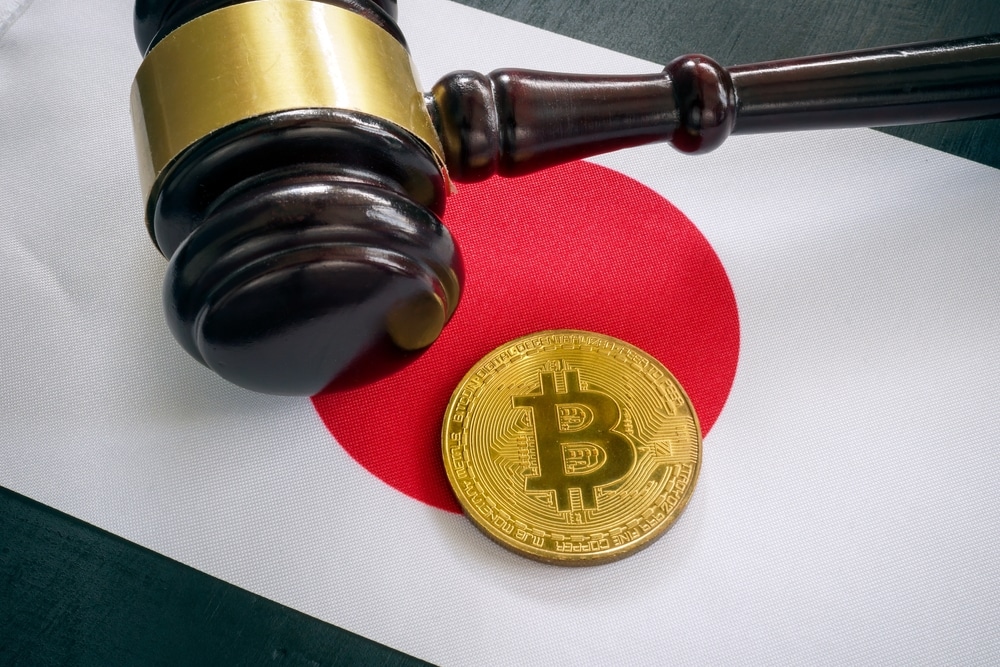Japan is set to welcome stringent anti-money laundering (AML) regulations beginning June 1 following the unanimous approval by the country’s legislators. The decision by the legislature demonstrates that the East Coast of Asia nation will introduce tougher AML provisions aligned with the ‘Travel Rule.’
Stricter AML Affirms Japan’s Aggressive Policy Towards Digital Assets
The stricter AML procedures are becoming effective from June 1 to instill traceability of crypto-based transactions. News of the approval of new AML procedures by the Japanese Parliament broke following the Tuesday, May 23 publication by local media house Kyodo News.
In support of the stricter AML provisions, the parliamentarians indicated that enforcing the legislation would catapult the country’s legal framework to the global oversight standards deployed by developed peers.
The journey to the May 23 approval traces to December when the Japanese lawmakers admitted insufficiency of the country’s AML legislation. As such, they devoted themselves to amending the existing legislation guided by the weaknesses highlighted by the international financial agency – the Financial Action Task Force (FATF).
Travel Rule Gains Needed Support Under Amended AML Legislation
The Kyodo News report quotes the parliamentarians’ discussions lauding the approval as a gift to the country in its effort to fight illicit financing. In particular, the lawmakers consider the amended AML procedures vital to catalyze the Travel Rule enforcement. Its achievement will yield accurate tracking of criminal proceeds.
The Travel Rule provisions mandate that all financial institutions executing crypto-related transfers exceeding $3000 furnish the recipient with the customer identifications. The rule outlines that such data should capture the customer’s name, sender’s address, and recipient’s account details.
The Travel Rule provisions featured widely in the mid-May discussions involving global leaders during the recent G7 meeting. The G7 Committee supported the Travel Rule procedures for crypto-related transactions, with Japan playing host to the delegates.
Also, the G7 Committee backed the FATF initiatives to accelerate harmonizing global standards on cryptocurrencies. It noted that the Travel Rule provisions are facilitative to safeguard against the risks of anonymity in DeFi arrangements and illicit financing during peer-to-peer transactions.
Parliament Supports FSA Efforts to Tighten Rules in Crypto Exchange
The parliamentarians echoed the G7 Committee’s views that Japan is among the early adopters of cryptos and a pioneer in legalizing its status as property. As such, adopting stringent crypto regulations is welcome as a catalyst to build confidence in virtual assets.
Meanwhile, the tougher AML procedures will integrate seamlessly with the stance adopted by the country’s financial regulator – Financial Services Agency (FSA). In recent pronouncements, the regulator has affirmed the necessity of tightened rules directed toward the crypto exchange.
The strict culture adopted by FSA is attributed to the unfortunate hacking incident where Mt Gox and Coincheck exchanges suffered the exploit.
Beyond enforcing the Travel Rule, FSA leverages several rules to reign control over the crypto exchange. Primarily, it safeguards customers by demanding the segregation of clients and the firm’s assets. The holdings are subjected to verification during annual audits.
Japan’s Aggressive Policies on Digital Assets
FSA leverages the regulation prohibiting investors from borrowing on exchange amounts exceeding twice their investments in leveraged trades. Additionally, FSA directs all licensed crypto exchanges to always hold 95% of the client’s funds in safe and verifiable cold wallets.
Japan’s move to ratchet up the crypto regulation standards traces to the past criticism lodged by FATF of relying upon inadequate procedures. The country has continually approved stricter legislation since the 2021 shaming of Japan’s inadequacies in digital assets regulation.
The Japanese legislature in June 2022 approved a legal structure that defined stablecoins as digital currencies. The law restricted the stablecoin issuance as an exclusive reservation for registered trust entities, banks, and money transfer agencies.
Japan would, in 2022, replicate the aggressive stance on digital assets and initiate amendments to the Foreign Exchange Act. The adjustments to crack the whip on crypto-based transactions were considered to reach the sanctioned Russian nationalists.
Beyond the criticism by FATF, Japanese regulators cite the brutal experiences in 2022 amidst the FTX implosion as the basis for aggressive policies targeting digital assets.
At Tokenhell, we help over 5,000 crypto companies amplify their content reach—and you can join them! For inquiries, reach out to us at info@tokenhell.com. Please remember, cryptocurrencies are highly volatile assets. Always conduct thorough research before making any investment decisions. Some content on this website, including posts under Crypto Cable, Sponsored Articles, and Press Releases, is provided by guest contributors or paid sponsors. The views expressed in these posts do not necessarily represent the opinions of Tokenhell. We are not responsible for the accuracy, quality, or reliability of any third-party content, advertisements, products, or banners featured on this site. For more details, please review our full terms and conditions / disclaimer.

